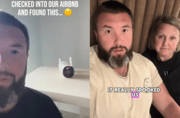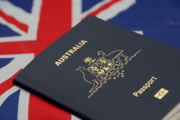Disability advocates call for rethink after Palmerston Hospital's hydrotherapy pool closes to external providers
By
ABC News
- Replies 0
Robyne Burridge has been receiving hydrotherapy for 76 years, since the age of four.
She lives with a disability that severely impacts her mobility, making hydrotherapy a vital part of her care.
But she hasn't received that treatment in months, since the NT government cut-off public access to the only suitable hydrotherapy pool in the Darwin region.
The pool, at Palmerston Regional Hospital, is now accessible only for inpatients and outpatients.
It is a significant blow for Ms Burridge, who was a key driver behind the pool's inception, but she says she won't stop fighting to regain access.
The disability advocate has sent numerous emails to the territory's health minister. She even compiled a report on the unsuitable hydrotherapy alternatives she was referred to, which she said were too deep or unheated.
"Everybody who contacts the minister's office gets a different response as to why the pool hasn't been utilised," Ms Burridge said.
"I've heard it was used five days [a week] but, in my investigation, it was only used five hours a week."
In a written statement to the ABC, NT Health reiterated the pool was utilised five days a week but could not verify how many hours it was used for.
Ms Burridge said, among other facilities, NT Health had referred her to local aquatic centre, SWELL Palmerston.
She said that while SWELL had a chair lift, the facility was still ultimately unsuitable for hydrotherapy because the pool is not heated — a crucial requirement for people navigating motion-related challenges.
The pool is also a recreational facility open to the whole community.
Ms Burridge said that only added to its unsuitability, with many people with disability feeling embarrassed to access a medical service in a public space.
"This is about kids who need regular therapy," she said.
"This is about people who are in severe pain who, without a hydrotherapy pool, are using a lot more pain medication and they're not able to do their daily activities and function in the community."
Local physiotherapist Emily Jordan used to visit the Palmerston Hospital pool with her clients from across the Darwin region two days a week.
She's had to move those sessions to SWELL, but said the lift does not work for every client's wheelchair.
"Some of our clients can no longer access hydro," she said.
"We're also exposed to the elements, so if there's lightning in the wet season or it's raining, then the clients are exposed to all of those elements when they're in the pool."
Ms Jordan said the facility change had also impacted some of her diverse clients, like the Indigenous women who cannot swim in the same pool as men simultaneously for cultural reasons.
"Palmerston Hospital pool gave us the opportunity to schedule those kinds of appointments, you can't do that in community pools," Ms Jordan said.
A NT Health spokesperson argued there were other hydrotherapy alternatives in the local area.
"There are a range of other services that provide heated pools and rehabilitation swimming areas for the community in the Darwin and Palmerston areas," the spokesperson said.
The spokesperson added that the Palmerston Regional Hospital provided "critical allied health care for both hospital inpatients and outpatients".
"[This includes] those who require cancer, orthopaedic and paediatric therapy, as well as long-stay patients and geriatric patients," they said.
"As such, external providers are not able to access the facility."
For now, advocates say many people living with disabilities have lost access to a vital service.
And they have been left wondering when — if ever — they'll get it back.
By Tilda Colling
She lives with a disability that severely impacts her mobility, making hydrotherapy a vital part of her care.
But she hasn't received that treatment in months, since the NT government cut-off public access to the only suitable hydrotherapy pool in the Darwin region.
The pool, at Palmerston Regional Hospital, is now accessible only for inpatients and outpatients.
It is a significant blow for Ms Burridge, who was a key driver behind the pool's inception, but she says she won't stop fighting to regain access.
The disability advocate has sent numerous emails to the territory's health minister. She even compiled a report on the unsuitable hydrotherapy alternatives she was referred to, which she said were too deep or unheated.
"Everybody who contacts the minister's office gets a different response as to why the pool hasn't been utilised," Ms Burridge said.
"I've heard it was used five days [a week] but, in my investigation, it was only used five hours a week."
In a written statement to the ABC, NT Health reiterated the pool was utilised five days a week but could not verify how many hours it was used for.
Ms Burridge said, among other facilities, NT Health had referred her to local aquatic centre, SWELL Palmerston.
She said that while SWELL had a chair lift, the facility was still ultimately unsuitable for hydrotherapy because the pool is not heated — a crucial requirement for people navigating motion-related challenges.
The pool is also a recreational facility open to the whole community.
"This is about kids who need regular therapy," she said.
"This is about people who are in severe pain who, without a hydrotherapy pool, are using a lot more pain medication and they're not able to do their daily activities and function in the community."
Local physiotherapist Emily Jordan used to visit the Palmerston Hospital pool with her clients from across the Darwin region two days a week.
She's had to move those sessions to SWELL, but said the lift does not work for every client's wheelchair.
"We're also exposed to the elements, so if there's lightning in the wet season or it's raining, then the clients are exposed to all of those elements when they're in the pool."
Ms Jordan said the facility change had also impacted some of her diverse clients, like the Indigenous women who cannot swim in the same pool as men simultaneously for cultural reasons.
"Palmerston Hospital pool gave us the opportunity to schedule those kinds of appointments, you can't do that in community pools," Ms Jordan said.
A NT Health spokesperson argued there were other hydrotherapy alternatives in the local area.
The spokesperson added that the Palmerston Regional Hospital provided "critical allied health care for both hospital inpatients and outpatients".
"[This includes] those who require cancer, orthopaedic and paediatric therapy, as well as long-stay patients and geriatric patients," they said.
"As such, external providers are not able to access the facility."
For now, advocates say many people living with disabilities have lost access to a vital service.
And they have been left wondering when — if ever — they'll get it back.
By Tilda Colling











